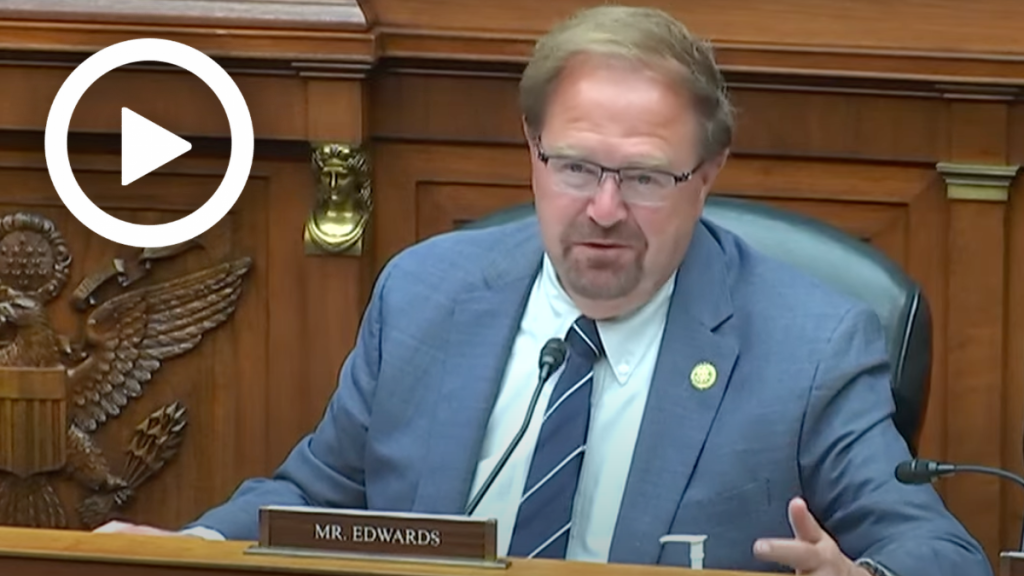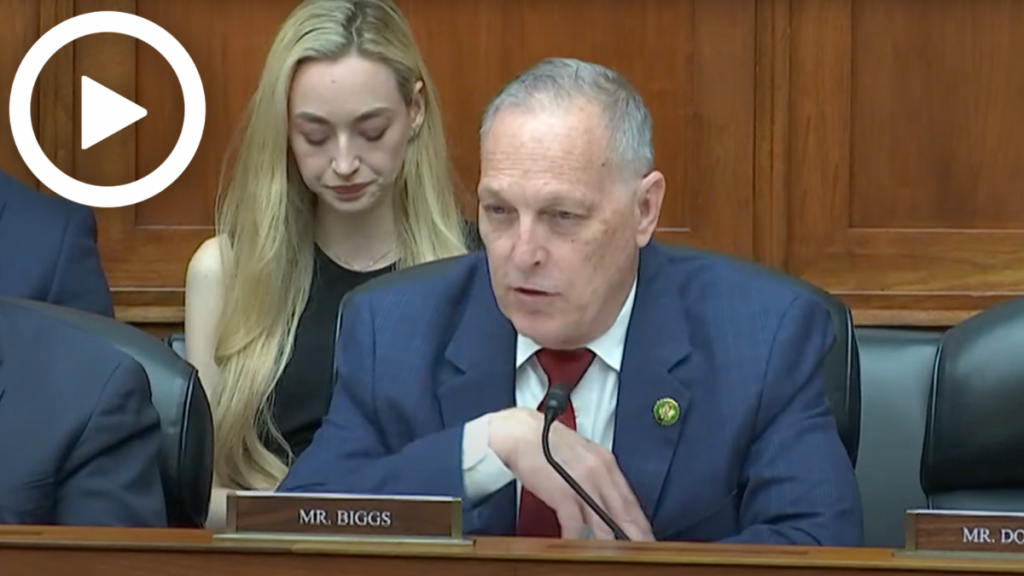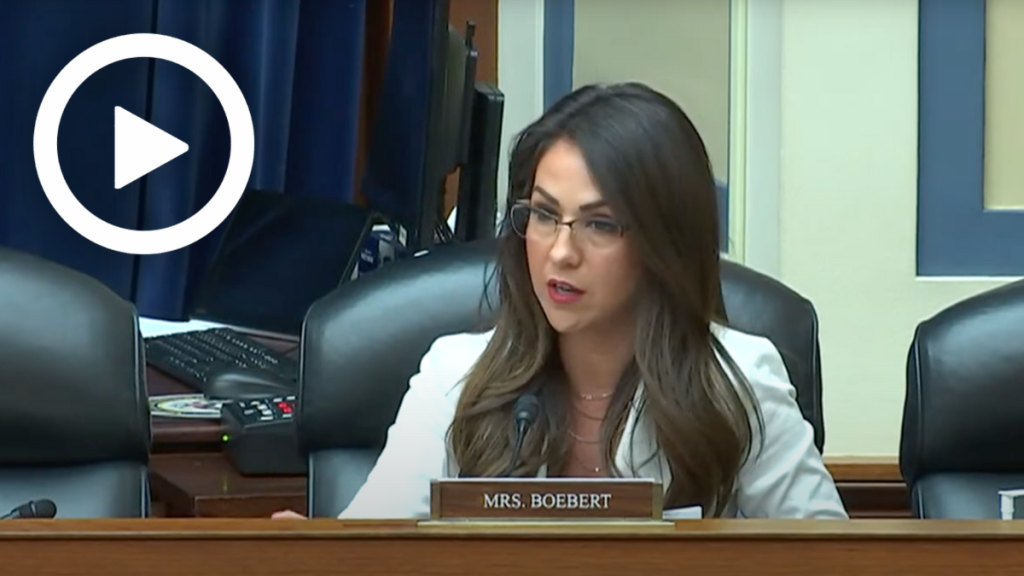Hearing Wrap Up: Federal Agencies Must Measure Impact of Telework on Agency Performance
WASHINGTON—The Subcommittee on Government Operations and the Federal Workforce held a hearing today titled “Oversight of Federal Agencies’ Post-Pandemic Telework Policies” to review telework policies at federal agencies and examine how heightened telework levels are impacting agency performance and the needs of the American people. After the Oversight Committee sent letters to 25 agencies asking for information and data related to telework policies and agency performance, witnesses from four agencies – the National Science Foundation, the National Aeronautics and Space Administration (NASA), the Nuclear Regulatory Commission (NRC), and the Department of Homeland Security (DHS) – appeared before the Committee to discuss how they are implanting and measuring telework at their agencies.
Key Takeaways:
The Biden Administration has continued to use pandemic-era levels of widespread telework in federal agencies.
- The COVID-19 pandemic led to widespread telework across federal agencies. Yet, even after President Biden pledged in his 2022 State of the Union Address that “the vast majority of federal workers will once again work in person,” agencies have maintained high levels of telework.
The Biden Administration has claimed widespread telework has proven effective and has produced many benefits without any evidence to back up these assertions.
- Oversight Committee Republicans have called on federal agencies to be transparent about the impact of expanded telework on agency mission accomplishment.
- Many of the agency responses leave a lot of unanswered questions, but all but one agency has finally provided at least some information..
Federal agencies must put the needs of the American people first. Agencies should provide data and measurements to ensure telework policies are assisting them in completing their missions.
- Randolph “Tex” Alles, Deputy Under Secretary for Management and Senior Official Performing the Duties of the Under Secretary for Management at DHS, agreed with the need for data to determine the impact telework has on agency missions during his opening testimony. “By leveraging data, we can determine if workplace flexibilities are having the intended effect on employee recruitment and the DHS mission,” Mr. Alles said.
Member Highlights:
Rep. Chuck Edwards (R-N.C.) asked about what agencies envision the benefits are for hybrid policies which allow employees to work both remotely and in person.
Rep. Edwards: “What measures of productivity have you put into place to ensure that when folks are working at home, we get the same output as if they were in the office for these four days?”
Mr. Alles: “To me, time present is not work. I want to measure what they’re doing output wise. We do that across our lines of business and across our different components.”
Rep. Edwards: “What assurances do you have that folks are totally engaged in their work?”
Mr. Alles: “They can be distracted, so I want my supervisors to be engaged in what work they’re performing and evaluating their output very candidly. That’s the best thing I can do, but that applies in the office, too.”
Rep. Andy Biggs (R-Ariz.) underscored how the needs of the American people should be the top priority for federal agencies. Rep. Biggs asked each of the agencies how they are currently measuring constituent satisfaction.
Rep. Biggs: “How are you measuring whether constituents are satisfied? How are you measuring whether constituents that you deal with, who you interface with, are receiving proper and adequate service?”
Mr. Dorman, Executive Director for Operation at NRC: “I think probably the best analogue there is our licensing case load. When we get an application from a licensee or applicant, we establish a schedule for the review and a level of effort associated with it, because we are a fee-recovery agency, and we communicate that to the licensees.”
Mr. Gibbs, Associate Administrator for the Mission Support Directorate at NASA: “We look at telework, remote work, and on-sight work the same. The same rules apply, the same expectations of professionalism apply, the same rules of making sure you get your job done to service the mission apply.”
Dr. Marrongelle, Chief Operating Office at the National Science Foundation: “One of our measures of productivity is number of proposals processed. That number peaked in 2021 when we were at maximum telework throughout the agency. That’s not the same, of course, as measuring the effectiveness of the agency.”
Mr. Alles: “We’re embarking on a new customer service experience program to understand how our work with our customers, our principal investigators, is effective.”
Rep. Lauren Boebert (R-Colo.) inquired how agencies responded to an email sent by President Biden’s White House Chief of Staff stressing the need to increase in-person work following the Oversight Committee’s letter.
Rep. Boebert: “On August 4th, 2023, White House Chief of Staff Jeff Zients sent an email stressing the importance of increased in-person work, stating increasing in-person work is a priority for President Biden to ‘deliver better results for the American people.’ […] Was there any confusion within your agency after this change of tone?”
Mr. Dorman: “We did reach out to OMB to seek clarification, Congresswoman. In response to OMB M-23-15, which calls for significant increase in meaningful in-person presence, the NRC had significantly increased our in-person presence in November 2021. The plan that we provided to OMB in May in response to that memo, and got OMB’s feedback, we were wondering if this email was suggesting a change in expectation.”
Subcommittee Chairman Pete Sessions (R-Texas) discussed the potential difficulties telework could cause for onboarding new hires. Chairman Sessions also requested each federal agency provide the Committee with further details and metrics regarding how they plan to evaluate the productivity of remote workers.
Chairman Sessions: “One of the concerns with telework is the impact on new hires, as we have noted today.”
Mr. Dorman: “At the NRS, one out of every six employees is new to the agency in the last two years. […] As part of our presence with purpose, one of our areas is the onboarding, training, and qualification of our new staff. A number of our offices have specific core days that are dedicated to staff training and development.”
Mr. Gibbs added: “One of the contributing factors to poor performance on [The Psyche mission] was telework, amongst many other contributing factors. I think the important message, at least within the NASA walls, is that we are owning up, having a critical evaluation independent review board, and we’re committee to corrective actions.”
CLICK HERE to watch the hearing.



